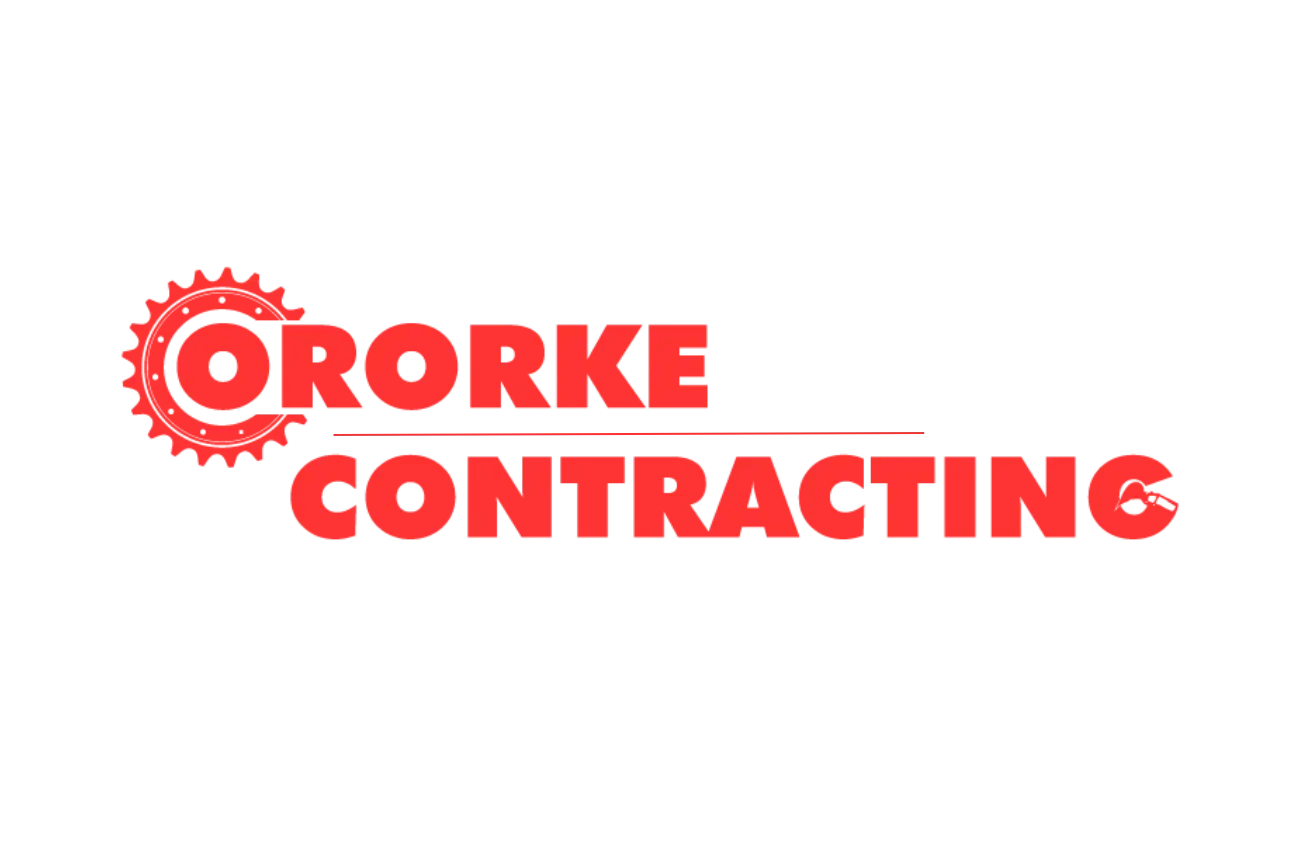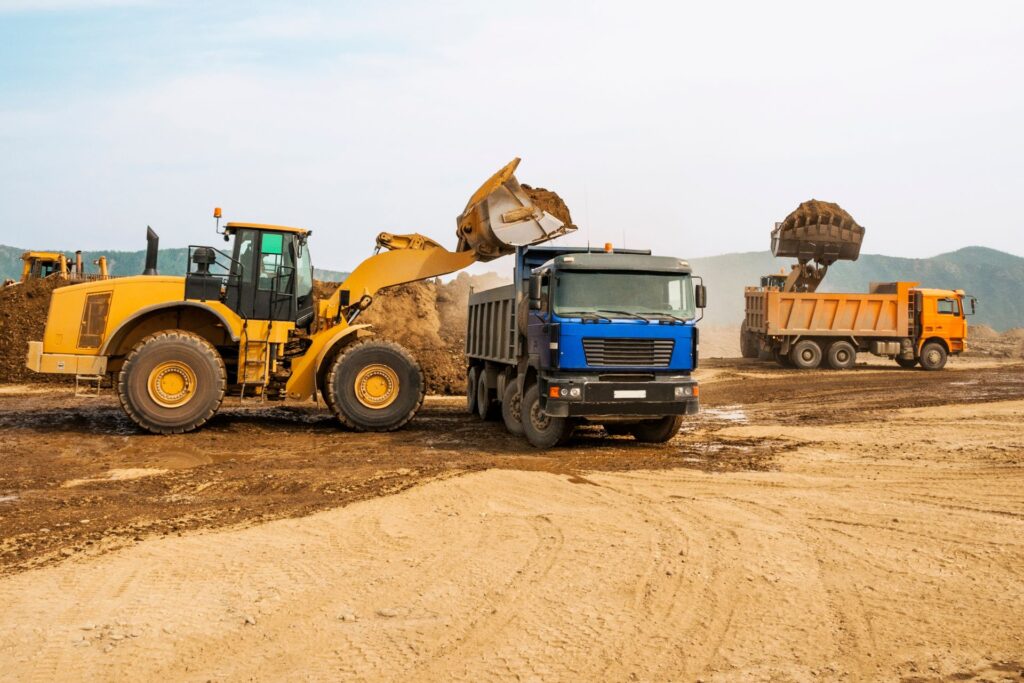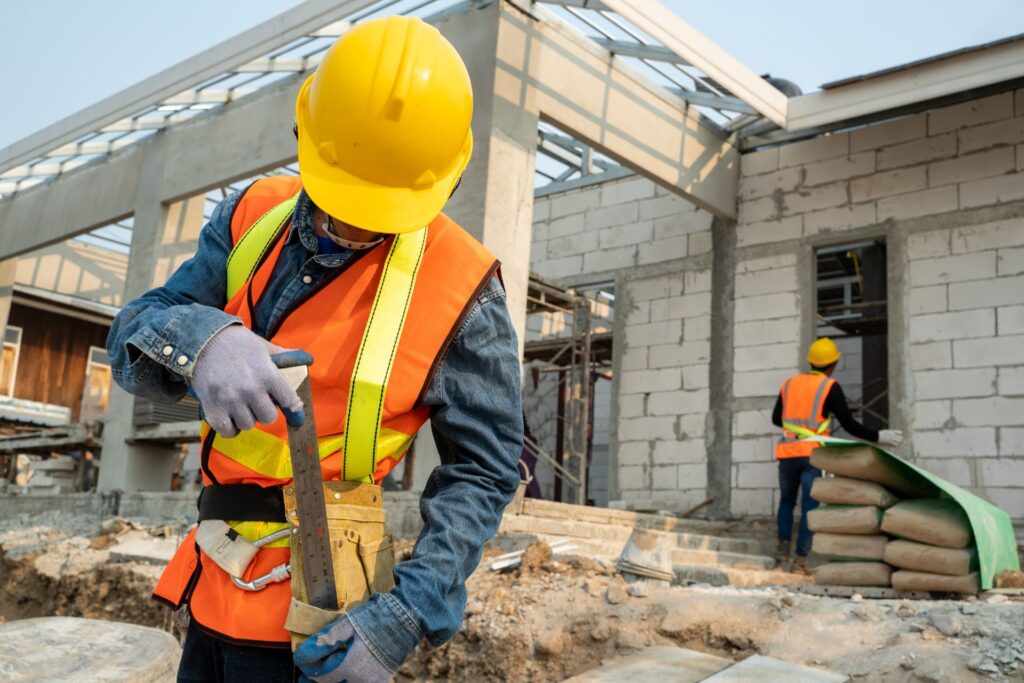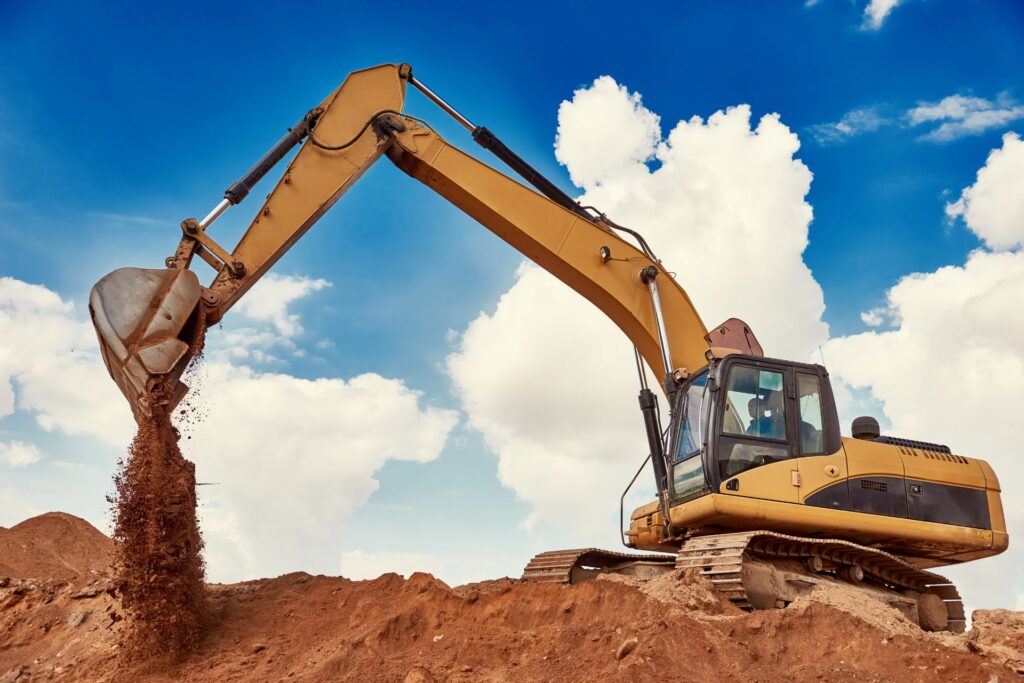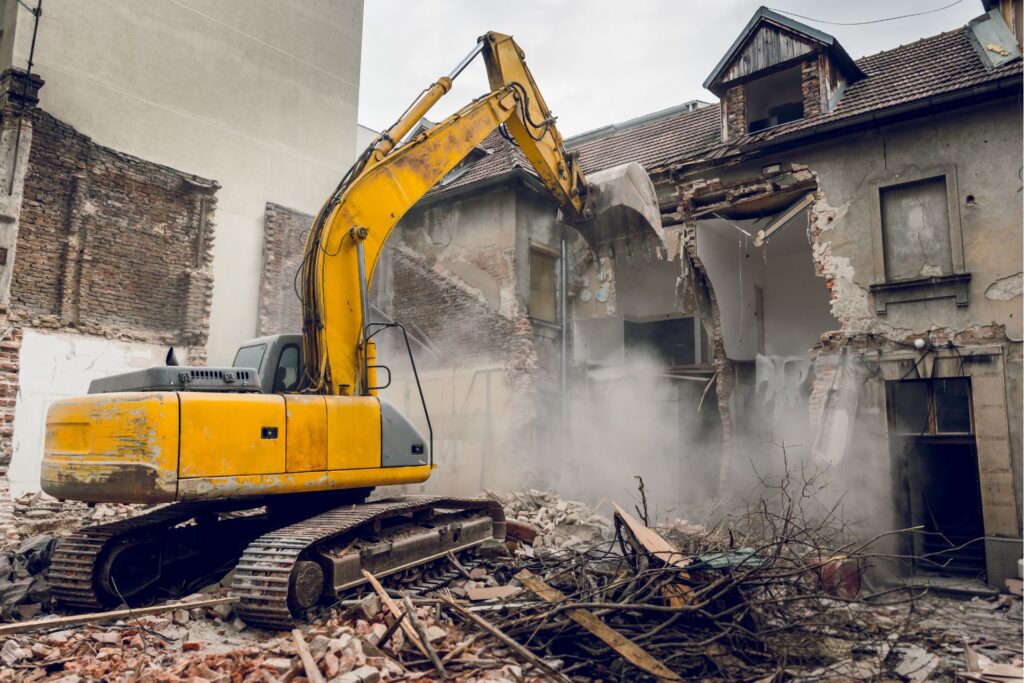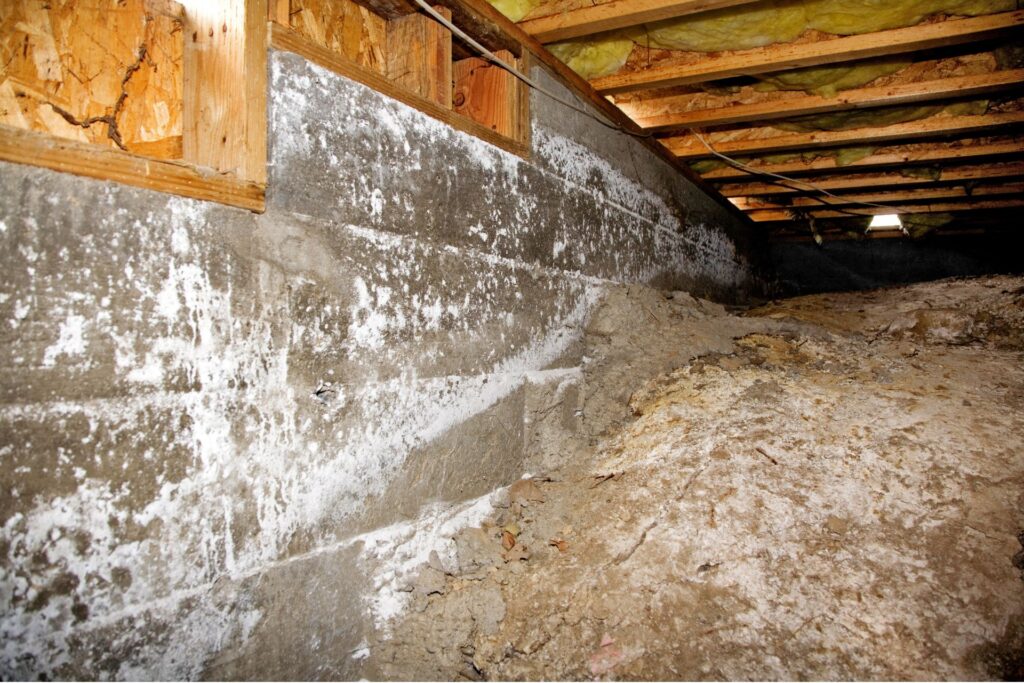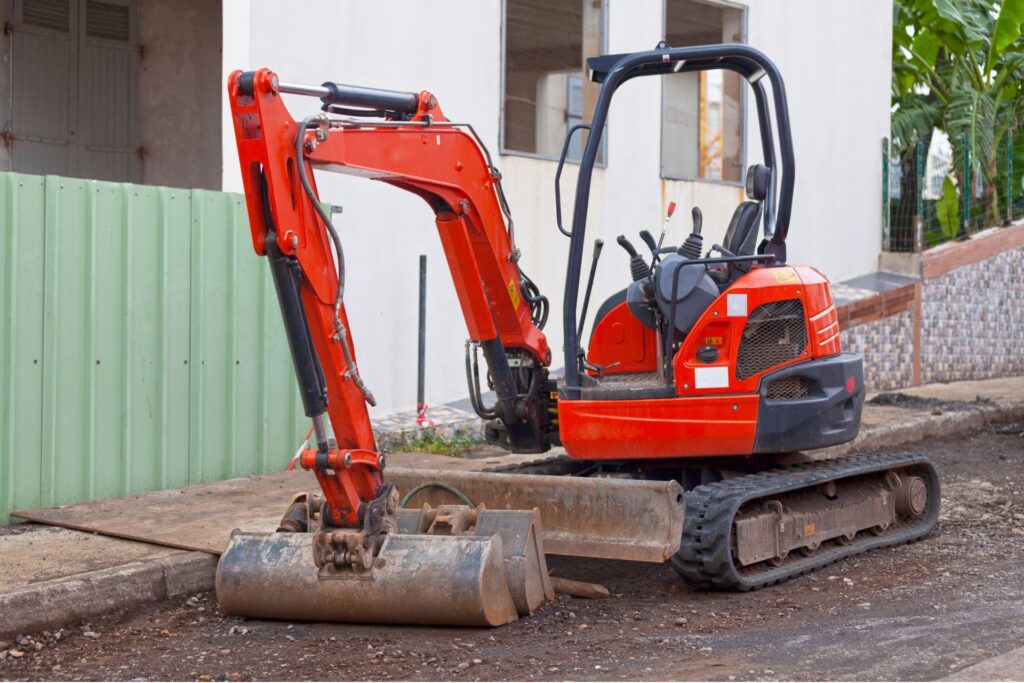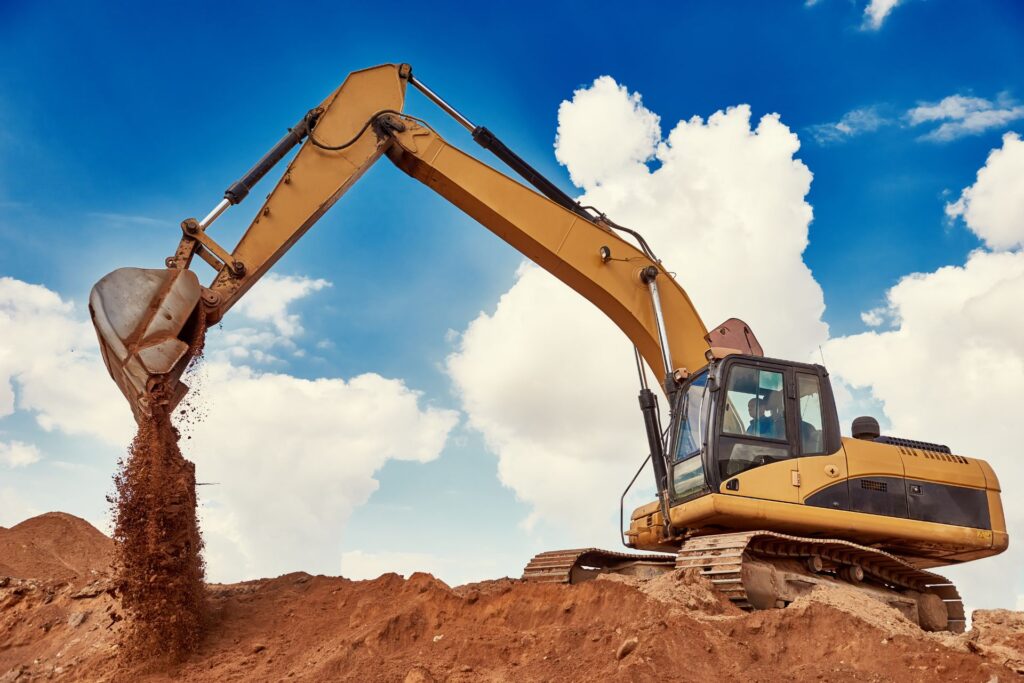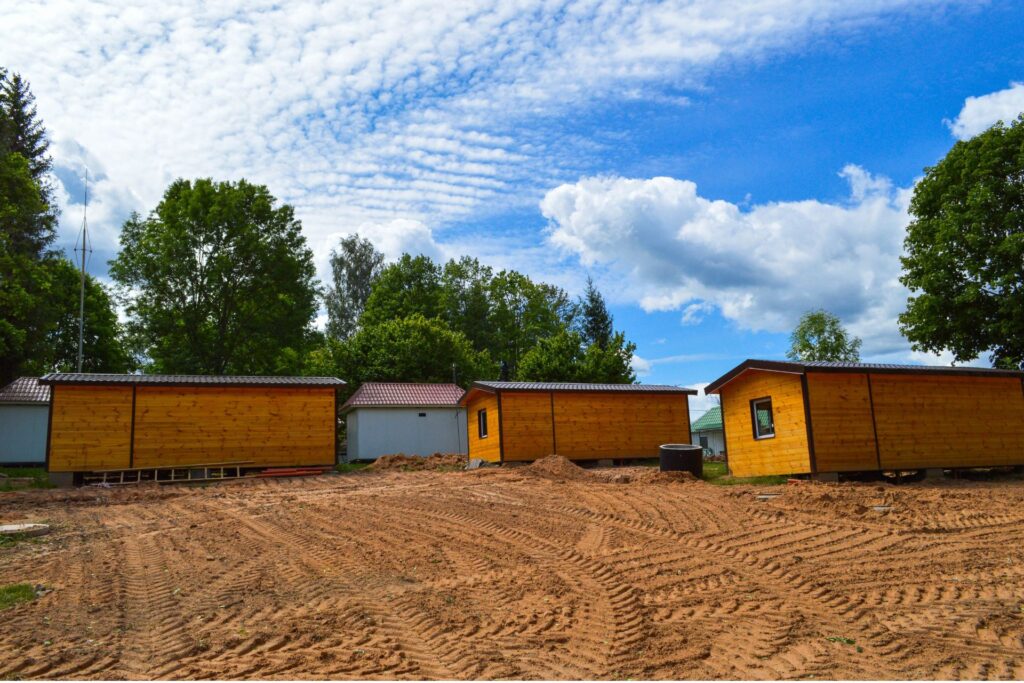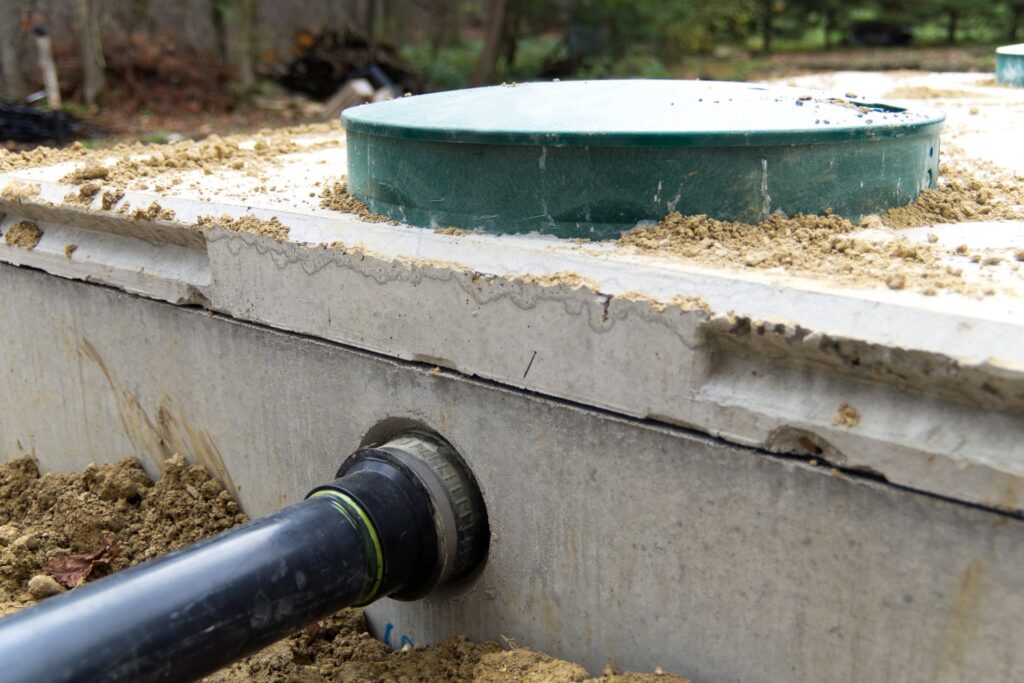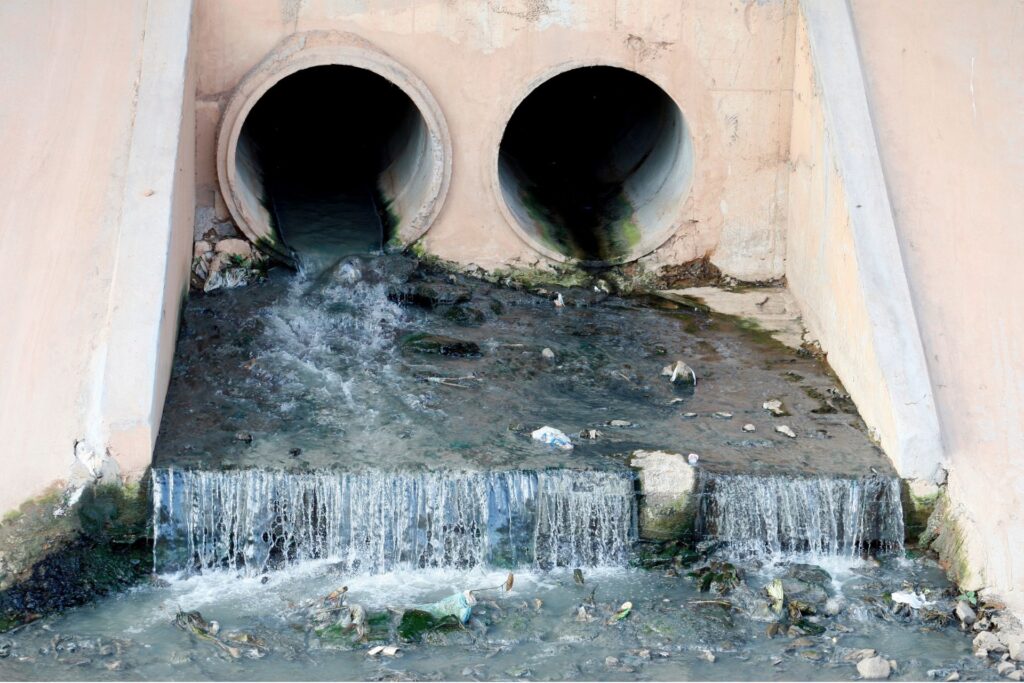Welcome to an insightful journey into understanding the cost of earthworks services in New Zealand. Earthworks are a critical foundation for any construction or landscaping project, encompassing everything from excavation to grading and trenching. Knowing the costs involved is essential for planning and budgeting, whether you’re embarking on a residential, commercial, or infrastructure project. In this article, we will break down the various factors that influence earthworks costs, provide detailed cost breakdowns, explore regional variations, and offer practical tips for saving money. Our goal is to equip you with the knowledge you need to make informed decisions and ensure your project runs smoothly and cost-effectively.
On average, the cost of earthworks services in New Zealand ranges from $50 to $150 per cubic meter, depending on factors such as project size, type of work, site conditions, and regional differences. Key cost drivers include labor, equipment rental, material disposal, and necessary permits. To obtain the most accurate estimate, it’s essential to get multiple quotes from reputable contractors and consider all potential expenses.
What Are Earthworks?
Earthworks involve a series of operations where the natural landscape is modified to suit construction and landscaping needs. This process includes various activities such as excavation, grading, and trenching:
Excavation: This is the process of removing earth to create a cavity in the ground. It can be for foundations, basements, or to create level areas on a sloping site.
Grading: This involves leveling or sloping the ground to ensure a proper base for construction projects. Proper grading ensures that the site has adequate drainage and that structures are built on stable ground.
Trenching: Trenching is digging narrow, long ditches used for installing underground utilities like water pipes, electrical cables, and sewer lines.
These activities are fundamental to preparing a site for construction and ensuring that the land is suitable for the planned project.
Importance
Earthworks are a critical component in a variety of projects, ranging from residential to commercial and infrastructure developments. Here’s why they are essential:
Residential Projects: In housing developments, earthworks are necessary to prepare the land for building foundations, driveways, and gardens. Proper earthworks ensure that homes are built on stable ground, reducing the risk of structural issues over time.
Commercial Projects: For commercial buildings, earthworks are vital for creating level surfaces, which are essential for the construction of large structures like office buildings, shopping centers, and warehouses. They also ensure that the site meets the design specifications and safety standards.
Infrastructure Projects: In large-scale infrastructure projects like roads, bridges, and railways, earthworks are indispensable. They help create a solid foundation, ensure proper drainage, and make the terrain suitable for heavy construction. Without proper earthworks, infrastructure projects could face significant delays and increased costs due to unstable ground conditions.
By understanding the role of earthworks in various projects, we can appreciate their significance in ensuring that construction projects are completed efficiently, safely, and to a high standard. Properly executed earthworks set the foundation for successful construction, contributing to the longevity and stability of the built environment.

Factors Influencing The Cost Of Earthworks
Understanding the factors that influence the cost of earthworks is crucial for budgeting and planning any construction project. Here’s a detailed look at the key elements that can impact the overall expense:
Project Size and Scope
The size and scope of the project play a significant role in determining the cost of earthworks.
Residential vs. Commercial Projects
Residential Projects: Typically involve smaller-scale work such as preparing a backyard for landscaping, building a small extension, or creating a driveway. These projects are usually less complex and require fewer resources, leading to lower costs.
Commercial Projects: On the other hand, these projects can range from constructing large office buildings to developing multi-acre industrial sites. They often require extensive planning, more equipment, and a larger workforce, which significantly increases the costs.
For example, a small backyard project might only need minor excavation and leveling, costing a few thousand dollars. In contrast, a large commercial development could involve extensive earthmoving, trenching, and grading, running into hundreds of thousands of dollars.
Type of Work Required
Different types of earthworks have varying costs associated with them:
Excavation: This involves digging up and removing soil or rock from a site to prepare for construction. The cost depends on the volume of material to be excavated and the complexity of the work. Excavation is often charged per cubic meter of material moved.
Grading: This process ensures the ground is level or has the correct slope for drainage. Grading can be a simple task for flat sites but can become expensive for sites with uneven terrain that require significant reshaping.
Trenching: This involves digging narrow, deep trenches for utilities like water pipes, electricity cables, or sewer lines. Trenching costs can vary depending on the depth and length of the trenches and the type of soil.
Site Conditions
The conditions of the site can dramatically affect the cost of earthworks:
Soil Type: Different soils have different characteristics that can impact the ease of excavation and stability of the site. For example:
Soft Soils: Such as sand or silt are easier to excavate but may require additional stabilization measures.
Hard Soils: Like clay or rock can be difficult and time-consuming to excavate, increasing labor and equipment costs.
Terrain and Accessibility: The physical characteristics of the site also matter. Steep slopes, rocky ground, or sites with poor access can complicate earthworks, requiring specialized equipment and techniques. These factors can lead to higher costs due to increased labor and time requirements.
Permits and Regulations
Compliance with local regulations and obtaining necessary permits is an essential part of any earthworks project:
Local Council Requirements: Different areas have varying requirements for earthworks. You may need permits for excavation, grading, or other types of work, each of which can add to the overall cost. Additionally, some councils have strict regulations about soil erosion control and site runoff management, which might necessitate extra work and expense.
Environmental Considerations: Environmental regulations are designed to protect natural resources and wildlife. Depending on the location of the project, there may be specific rules about working near waterways, preserving certain plant species, or managing dust and noise pollution. Compliance with these regulations can require additional planning, specialized equipment, and potentially higher costs.
By understanding these factors, you can better estimate the costs involved in your earthworks project and plan accordingly. Whether you are undertaking a small residential project or a large commercial development, being aware of these influences will help you manage your budget more effectively and avoid unexpected expenses.

Breakdown Of Earthworks Costs
Understanding the costs involved in earthworks is crucial for budgeting any construction project. Here, we delve into the various components that contribute to the overall expense, ensuring you have a clear picture of where your money is going.
Labor Costs
Skilled vs. Unskilled Labor
Labor costs in earthworks can vary significantly depending on the type of labor required. Skilled laborers, such as heavy machinery operators and surveyors, command higher rates due to their expertise and training. Unskilled laborers, performing tasks such as manual digging or transporting materials, are generally less expensive. The difference in rates is justified by the level of skill and training needed for each role.
Example Rates
To provide a clearer picture, skilled laborers in New Zealand typically charge between $35 to $50 per hour, while unskilled laborers may charge around $20 to $30 per hour. These rates can fluctuate based on experience, location, and the complexity of the project.
Equipment and Machinery
Types of Machinery Used
Earthworks require various types of machinery, each suited to specific tasks. Common equipment includes:
Excavators: Used for digging and removing soil.
Bulldozers: Ideal for pushing large quantities of soil.
Trenchers: Specialized for digging trenches for utilities and drainage.
Rental vs. Owned Equipment
The decision to rent or own machinery can significantly impact costs. Renting equipment can be cost-effective for short-term projects or when specific machinery is needed temporarily. However, for long-term projects or frequent use, owning equipment might be more economical despite the initial high investment.
Cost Implications
Renting an excavator might cost around $150 to $200 per day, while purchasing one can be upwards of $100,000. The choice depends on the project’s duration and frequency of machinery use.
Material Costs
Soil Disposal
Removing and disposing of excavated soil is an often-overlooked cost. Disposal fees depend on the amount of soil and the disposal site’s distance. In New Zealand, these costs can range from $50 to $100 per cubic meter, depending on local regulations and landfill fees.
Fill Material
In many projects, imported fill material is needed to replace excavated soil or level the site. The cost of fill material like soil, gravel, or sand varies but typically ranges from $30 to $70 per cubic meter, including transportation costs.
Additional Services
Surveying and Planning
Professional surveying and planning are critical for successful earthworks. Surveyors ensure that the land is accurately measured and that the project complies with regulations. The cost for surveying services can range from $100 to $200 per hour, depending on the project’s complexity and location.
Erosion Control Measures
Erosion control is essential to prevent soil erosion and water runoff during and after construction. Measures such as silt fences, sediment basins, and erosion control blankets are common. The costs for these measures can add up, typically ranging from $500 to $2,000, depending on the size and nature of the project.
By understanding these various cost components, you can better plan and budget for your earthworks project, ensuring no unexpected expenses arise. Proper planning and knowledge of these costs can lead to more efficient and cost-effective project execution.

Regional Cost Variations In New Zealand
Major Cities vs. Rural Areas
When it comes to the cost of retaining walls in New Zealand, there is a notable difference between major cities and rural areas. This variation is influenced by several factors including demand, labor costs, and the availability of materials.
Cost Differences: In major cities like Auckland and Wellington, the cost of constructing retaining walls is significantly higher compared to rural areas. This is primarily due to the higher cost of living in these urban centers, which translates to increased labor costs. Additionally, the demand for construction services is much higher in cities, driving up prices. For instance, the bustling city of Auckland often experiences higher costs due to its booming housing market and urban development projects. In contrast, rural areas tend to have lower costs as the demand is less intense and labor is generally cheaper.
Case Studies: To illustrate these cost differences, let’s consider two examples. In Auckland, the average cost of a retaining wall might be around NZD 350 per square meter, whereas in a rural area such as Taranaki, the cost could be as low as NZD 250 per square meter. Another example is Wellington, where steep terrain and regulatory requirements can push costs to NZD 400 per square meter, while in a more rural setting like the Canterbury Plains, the costs might drop to NZD 280 per square meter. These examples highlight how location within New Zealand can significantly impact the overall cost of retaining wall projects.
North Island vs. South Island
The geographical location within New Zealand also plays a crucial role in determining the cost of retaining wall construction. The North Island and South Island each present unique challenges and opportunities that affect pricing.
Geographical Impact: The North Island, being more densely populated and urbanized, often sees higher costs due to better accessibility to materials and labor. For instance, cities like Auckland and Wellington, located on the North Island, benefit from robust supply chains, which, while ensuring the availability of materials, also means higher costs due to increased demand.
In contrast, the South Island, with its expansive rural areas and smaller population centers, may offer lower costs but comes with logistical challenges. The availability of materials can be limited, and transportation costs can be higher due to the more remote locations. For example, a retaining wall project in Christchurch, a major city in the South Island, might cost less in terms of materials but could incur additional expenses related to transportation and labor mobilization.
Moreover, the terrain and weather conditions in the South Island can add to the complexity and cost of construction projects. Areas with challenging landscapes or those prone to adverse weather conditions may require more robust and expensive solutions to ensure stability and longevity.
In conclusion, understanding regional cost variations is essential for anyone planning a retaining wall project in New Zealand. Whether you are in a bustling city a tranquil rural area, or on the North or South Island, these factors must be considered to budget accurately and make informed decisions.

Cost-Saving Tips For Earthworks Projects
Planning and Design
Efficient Design: Proper planning and design are crucial steps in reducing the costs of your earthworks projects. By investing time and resources into a comprehensive design phase, you can foresee potential challenges and address them before they become costly issues. Efficient design can minimize waste, optimize material use, and streamline the construction process, all of which contribute to significant cost savings. Consider working with a professional designer who understands the intricacies of earthworks to ensure your project is both cost-effective and efficient.
DIY vs. Professional Help: Deciding when to take on tasks yourself and when to hire professionals can impact your overall costs. Simple tasks like minor site preparation might be feasible as DIY projects, saving you money on labor. However, for more complex tasks that require specialized equipment or expertise, it’s often more cost-effective in the long run to hire professionals. They can complete the job more quickly and accurately, reducing the risk of costly mistakes and rework.
Comparing Quotes
Multiple Quotes: One of the most effective ways to save money on your earthworks project is to obtain multiple quotes from different contractors. This allows you to compare prices, services, and timelines, ensuring you get the best value for your money. When gathering quotes, make sure they are detailed and cover all aspects of the project to avoid any surprises later on.
What to Look For: When reviewing quotes, it’s essential to consider more than just the bottom line. Look for any hidden costs that might not be immediately apparent, such as charges for additional materials or unexpected labor. Assess the scope of work to ensure it covers everything you need. Also, consider the quality of materials and workmanship. A lower quote might save you money upfront but could cost more in the long run if it leads to poor-quality results and the need for future repairs.
Negotiating with Contractors
Building Relationships: Establishing a good relationship with your contractors can lead to better rates and terms. Contractors are often more willing to offer discounts or go the extra mile for clients they have a positive relationship with. This rapport can also lead to better communication and a smoother project overall, reducing the likelihood of misunderstandings and costly delays.
Negotiation Tips: Effective negotiation can help you secure better rates or more favorable terms for your project. Start by being clear about your budget and what you need. Be prepared to discuss specific aspects of the quote and ask for clarifications on any points that are unclear. Don’t be afraid to ask for discounts or suggest alternative payment terms that might be more manageable. Remember, negotiation is about finding a mutually beneficial arrangement, so approach it with a collaborative mindset rather than an adversarial one.
By following these cost-saving tips, you can manage your earthworks project more effectively and ensure it stays within budget. Proper planning, diligent comparison of quotes, and strategic negotiation with contractors are key strategies that can lead to significant savings without compromising the quality of your project.

Hiring The Right Earthworks Contractor
Choosing the right earthworks contractor is a critical step in ensuring the success of your construction project. This decision can significantly impact the quality, efficiency, and overall cost of your project. Here are some essential factors to consider and questions to ask when hiring an earthworks contractor in New Zealand.
Qualities to Look For
Experience and Expertise
Experience is a key factor when selecting an earthworks contractor. Contractors with extensive experience are more likely to handle unexpected challenges efficiently and deliver high-quality results. They have a deep understanding of various soil types, local regulations, and the latest technology and equipment in the industry. Look for contractors who have been in the business for several years and have a proven track record of successful projects similar to yours.
Reputation and Reviews
A contractor’s reputation speaks volumes about their reliability and quality of work. Check online reviews, testimonials, and ratings on platforms like Google, Yelp, and industry-specific forums. Positive feedback from previous clients can provide assurance of their competence and professionalism. Additionally, ask for references from the contractor and follow up with those clients to get a firsthand account of their experience.
Questions to Ask
Key Questions
When interviewing potential contractors, ask detailed questions to gauge their suitability for your project. Here are some crucial questions to consider:
- Are you licensed and insured? Ensure the contractor has the necessary licenses to operate in New Zealand and carries adequate insurance to cover any potential damages or accidents.
- Can you provide examples of similar projects you have completed? This helps you assess their experience with projects similar to yours and evaluate the quality of their work.
- What is your proposed timeline for this project? A clear timeline helps set expectations and ensures the project stays on schedule.
- How do you handle unexpected issues or changes in the project scope? This question can reveal the contractor’s problem-solving abilities and flexibility.
- What are your payment terms and conditions? Understanding their payment schedule and terms can help you plan your finances better.
Red Flags
While evaluating contractors, be aware of potential red flags that might indicate unreliability or subpar work quality:
1. Lack of Proper Documentation: If a contractor hesitates to provide licenses, insurance proof, or previous project examples, it’s a major warning sign.
2. Unclear or Vague Estimates: A professional contractor should provide a detailed and transparent estimate. Avoid contractors who give vague or overly optimistic estimates without proper backing.
3. Negative Reviews or No Reviews at All: Consistently negative feedback or an absence of reviews should make you cautious. Investigate further to understand the reasons behind the negative comments.
4. Poor Communication: If a contractor is unresponsive or unclear in their communication during the initial stages, it’s likely this will continue throughout the project.
Hiring the right earthworks contractor requires thorough research and careful consideration. By focusing on experience, and reputation, and asking the right questions, you can find a contractor who will deliver quality work on time and within budget. Avoiding red flags ensures you select a reliable partner for your project, paving the way for a smooth and successful construction process.

Real-Life Examples And Case Studies
Residential Project Example
Cost Breakdown: Let’s dive into the nitty-gritty details of a typical residential project to give you a clear picture of what to expect in terms of costs. Imagine you’re planning to build a modest-sized family home. The total cost can vary widely depending on various factors such as location, materials, and labor. Here’s a detailed breakdown:
1. Land Purchase and Preparation
Land Cost: Depending on the area, this could range from $50,000 to $300,000.
Site Preparation: Includes clearing the land, excavation, and grading, typically costing between $10,000 and $50,000.
2. Design and Permits
Architect Fees: Usually 5-15% of the total construction cost, let’s assume around $10,000. Permits and Inspections: These can add another $5,000 to $10,000 to the budget.
3. Foundation and Framing
Foundation: Depending on the type, costs can range from $15,000 to $40,000.
Framing: Generally, this will be between $20,000 and $50,000.
4. Interior and Exterior Finishes
Exterior Finishes: This includes roofing, siding, and windows, typically costing between $30,000 and $70,000.
Interior Finishes: Flooring, painting, and trim work can add up to $40,000 to $80,000.
5. Utilities and Systems
Plumbing and Electrical: Expect to pay around $15,000 to $30,000.
HVAC Systems: These systems usually cost between $10,000 and $20,000.
6. Landscaping and Final Touches
Landscaping: Basic landscaping could range from $5,000 to $20,000.
Miscellaneous Costs: Always budget an additional 10-20% for unexpected expenses, around $20,000.
In total, for a residential project, you might be looking at costs ranging from $250,000 to $600,000, depending on your choices and location.
Commercial Project Example
Cost Breakdown: Commercial projects often involve more complexities and thus can be more expensive. Let’s consider a small commercial building, such as a retail store or office space.
1. Land Acquisition and Preparation
Land Cost: Commercial land can be pricier, ranging from $100,000 to $500,000.
Site Preparation: Expect costs between $20,000 and $100,000 due to stricter regulations and larger scale.
2. Design and Regulatory Approvals
Architect and Engineer Fees: Typically 5-10% of the construction cost, say around $30,000.
Permits and Compliance: More rigorous and expensive, ranging from $20,000 to $50,000.
3. Structural Work
Foundation: Costs can range from $50,000 to $150,000, depending on the building size.
Steel Frame and Construction: Generally, this can cost between $100,000 and $300,000.
4. Interior Finishing
Interior Walls, Flooring, and Ceilings: These can add up to $80,000 to $200,000.
Electrical and Plumbing Systems: For commercial projects, expect around $50,000 to $150,000.
5. Mechanical Systems
HVAC Systems: Typically more robust and expensive, ranging from $30,000 to $80,000.
Fire Safety and Alarms: Can add another $20,000 to $60,000 to the budget.
6. Exterior Work and Landscaping
Parking and Landscaping: This can range from $30,000 to $100,000.
Signage and Finishing Touches: Another $10,000 to $30,000.
In total, a small commercial project might range from $500,000 to $1.5 million, largely depending on the size and complexity of the build.
Lessons Learned
Common Pitfalls and How to Avoid Them: Both residential and commercial projects come with their own sets of challenges. Here are some common pitfalls and strategies to avoid them:
1. Underestimating Costs: One of the most common mistakes is underestimating the total project cost. Always add a buffer of 10-20% to your budget to cover unexpected expenses.
2. Inadequate Planning: Skipping the planning phase can lead to delays and increased costs. Spend adequate time in the planning stage to ensure everything is accounted for.
3. Poor Contractor Selection: Choosing the wrong contractor can be disastrous. Vet contractors thoroughly, check references, and ensure they have experience with projects similar to yours.
4. Ignoring Permits and Regulations: Failing to comply with local building codes can result in fines and project delays. Make sure all permits are secured before starting the project.
5. Inadequate Communication: Poor communication between stakeholders can lead to misunderstandings and errors. Establish clear communication channels and keep everyone informed throughout the project.
By learning from these real-life examples and understanding the common pitfalls, you can better navigate your own building projects, whether residential or commercial, ensuring a smoother and more cost-effective process.

FAQs: About Cost Of Earthworks Services NZ
Earthworks services encompass a variety of activities involved in preparing land for construction or landscaping. These activities include excavation, grading, trenching, and soil removal or filling.
Several factors affect the cost, including the size and scope of the project, the type of work required (such as excavation or grading), site conditions (soil type, terrain, and accessibility), and regional cost variations.
On average, excavation costs range from $50 to $150 per cubic meter. The exact price depends on factors like project size, soil type, and site accessibility.
Costs vary due to differences in local labor rates, material availability, transportation costs, and regional demand for earthworks services. Urban areas like Auckland and Wellington generally have higher costs compared to rural areas.
Additional costs may include permits and regulatory fees, erosion control measures, surveying and planning services, and the disposal of excavated materials.
To save money, plan your project efficiently, obtain multiple quotes from contractors, negotiate terms, and consider doing some minor tasks yourself if feasible. Additionally, choosing a contractor with a good reputation and experience can prevent costly mistakes.
Look for contractors with extensive experience, positive reviews, proper insurance, and a track record of successfully completed projects. It’s also essential to ensure they comply with local regulations and environmental standards.
Common pitfalls include underestimating costs, not accounting for site-specific challenges, failing to obtain necessary permits, and choosing inexperienced contractors. Thorough planning and choosing the right contractor can help avoid these issues.
Yes, most earthworks projects require permits from local councils. The specific requirements and costs can vary depending on the project’s scope and location. It’s essential to check with your local council for detailed information.
Residential projects are typically smaller in scale and may involve tasks like landscaping, driveway construction, or home foundations. Commercial projects are larger and more complex, often involving extensive excavation, site preparation for large buildings or infrastructure development. The costs and equipment required for commercial projects are usually higher.
Conclusion
In conclusion, this article has thoroughly covered the key aspects of earthworks services in New Zealand, providing insights into their costs and the factors influencing these expenses. It is crucial to emphasize the importance of meticulous planning and selecting the right contractor, as these steps are fundamental in managing and potentially reducing costs. As a final thought, remember that the success of your project largely depends on these preparatory steps. We strongly encourage you to obtain multiple quotes and conduct comprehensive research before embarking on any earthworks project. This approach ensures you make well-informed decisions, leading to a smoother, more cost-effective process.
About the Author:
Mike Veail is a recognized digital marketing expert with over 6 years of experience in helping tradespeople and small businesses thrive online. A former quantity surveyor, Mike combines deep industry knowledge with hands-on expertise in SEO and Google Ads. His marketing strategies are tailored to the specific needs of the trades sector, helping businesses increase visibility and generate more leads through proven, ethical methods.
Mike has successfully partnered with numerous companies, establishing a track record of delivering measurable results. His work has been featured across various platforms that showcase his expertise in lead generation and online marketing for the trades sector.
Learn more about Mike's experience and services at https://theleadguy.online or follow him on social media:
